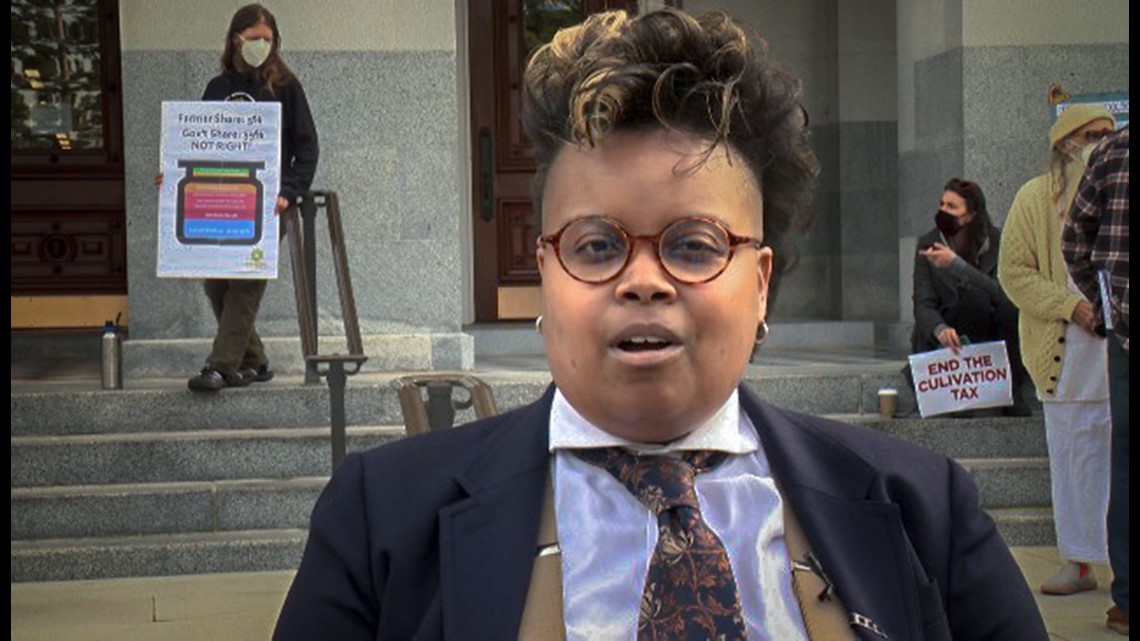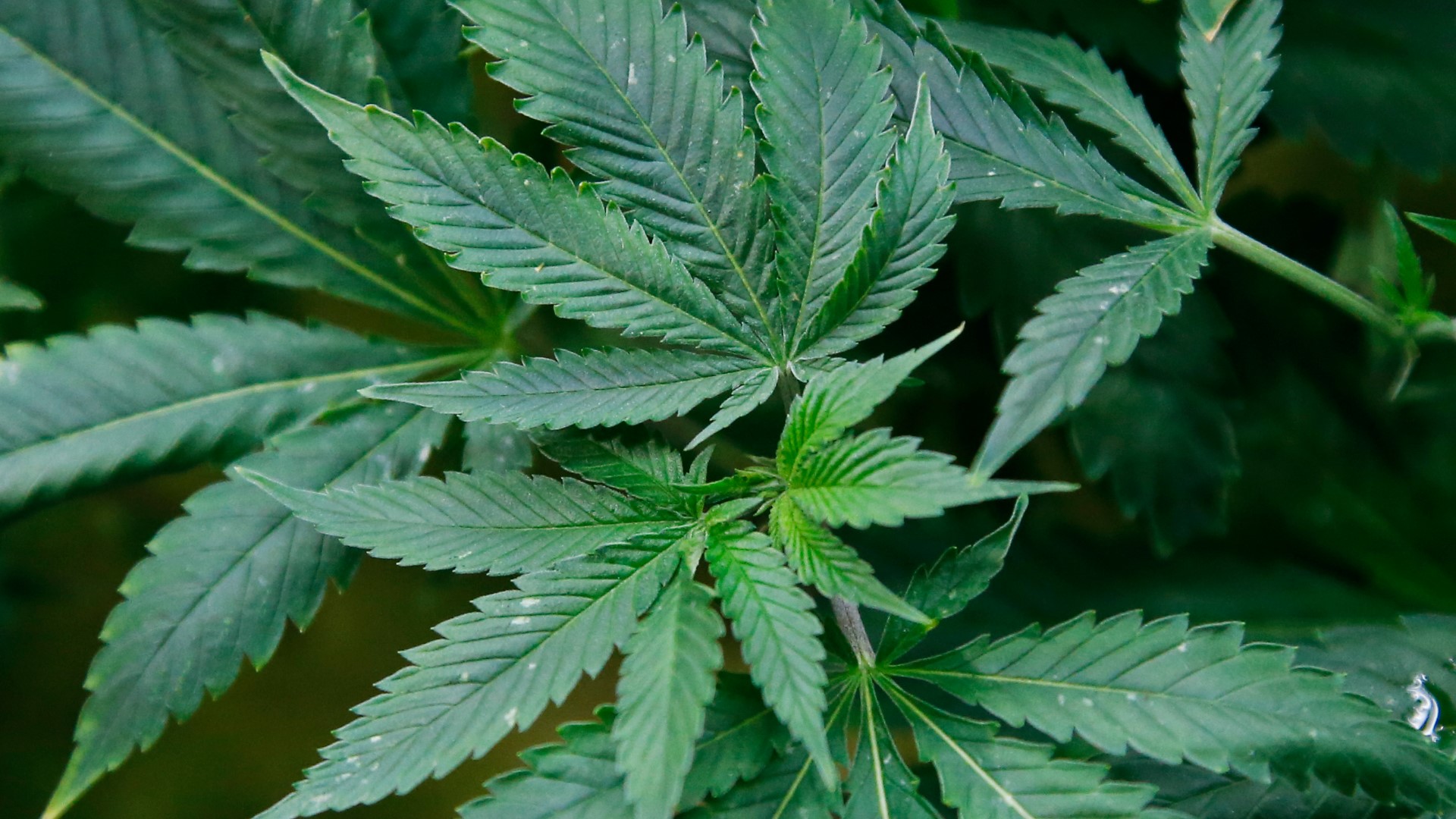SACRAMENTO, Calif. — High tax rates on cannabis consumers and businesses are driving those in the community back into the unregulated market, according to Johnny Casali of Huckleberry Farms.
"There's not a problem with us. There's a problem with the system (California) created," he told ABC10. "Without federal legalization and them continuing to permit farms when there's an oversupply issue, there's now a price point we're receiving.
As Casali stood with a coalition of farmers outside the Sacramento Capitol on Thursday, he said the price of cannabis has been driven down by oversaturation in the supply. He's now paying almost one-third the price of the product in taxes.
There's only a certain number of retailers who are allowed to contract with farmers like him because of current legislation.
"We don't want (California) to eliminate the cultivation tax; we want them to tax us on a percentage basis," Casali said. "If they really want to help the small farmer they can say, 'the first thousand pounds produced in California is free of cultivation tax.' It would help the small farmer most."
Organizer of the Thursday rally Amber Senter, from Supernova Women, said social equity operators that are already at a disadvantage could go under, while larger cannabis retailers can better handle fixed tax rates.


Social equity operators are cannabis workers previously affected by harsh and unfair drug law enforcement laws who are given priority in cannabis business licensing and storefront launch.
They're rallying for the repeal of both the 15% excise sales tax and per-ounce cultivation tax for social equity operators.
"Cannabis prices are plummeting, however, many of our taxes are fixed. So they're not adjusting to the economy. It's causing quite a burden," Senter said. "It's very hard to raise funds, and this is a capital intensive industry -- you need a lot of money to make it."

















